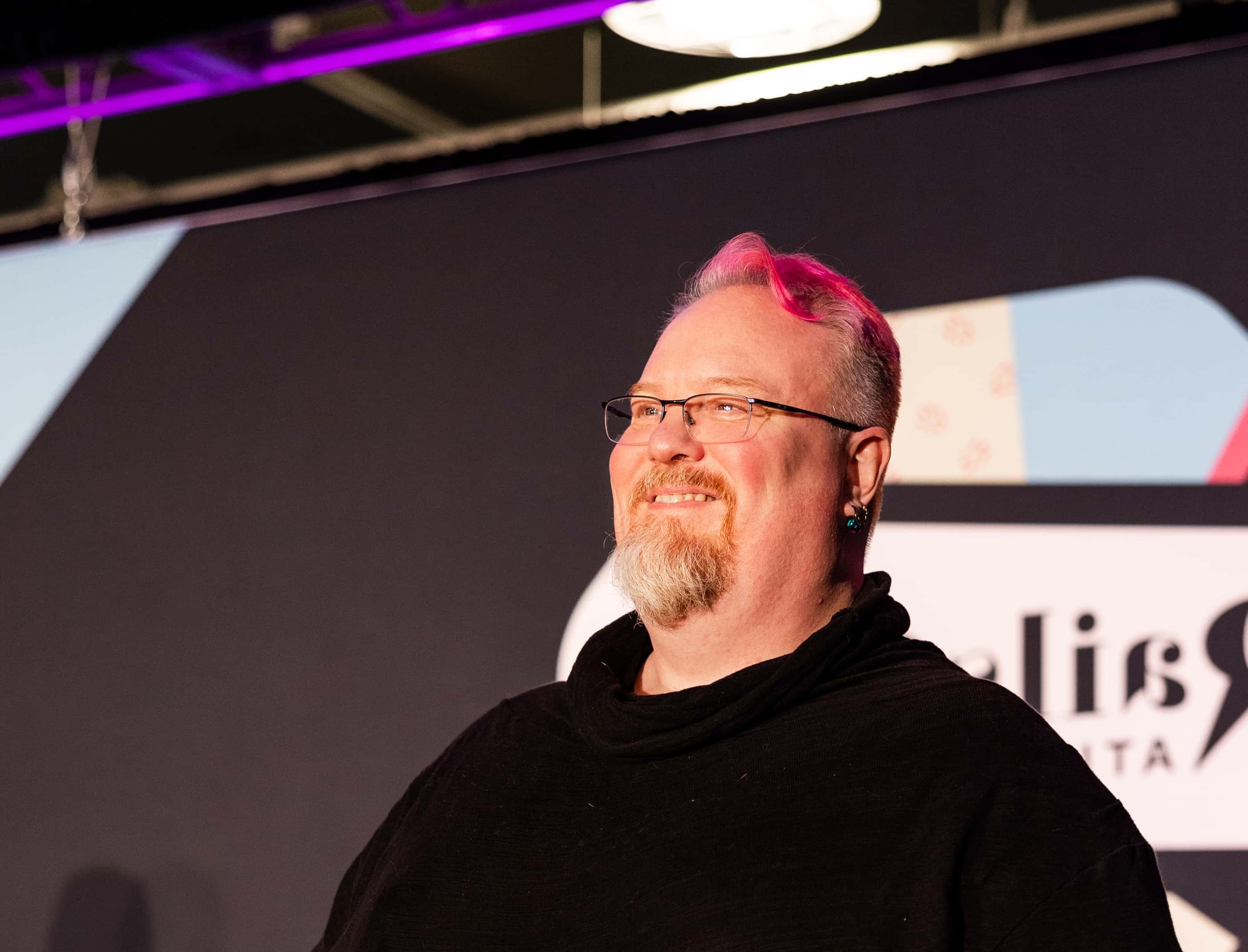Speakers

W. Landon Gray
Founder & AI Engineer
Identus Consulting
My name is Landon, and I’m the founder of Identus Consulting. I help teams turn big ideas into real products. I specialize in using Ruby; however, I can also support organizations in various languages, tools, or ecosystems to create smart, scalable, and effective AI-driven applications and solutions. My focus is on developing MVPs and leading strategic initiatives that align with your business goals and propel you forward swiftly. Whether you’re building a new MVP, needing help managing a recently launched project, or seeking to streamline existing operations, I’m here to build powerful solutions that grow with you.
Ruby on RAG: Building AI Use Cases for Fun and Profit
This talk will cover what RAG is, how it works, and why we should be building RAG applications in Ruby and Rails. I'll share some code examples of what a toy RAG pipeline looks like in native Ruby and do a live demo of a simple RAG application. I'll also share a perspective as to why Ruby and Rails are great tools for building LLM applications and that the future languages for building such applications are whatever languages are most natural to you.

Lessons From The Sky
Does dangling from the sky from nylon bedsheets have anything to do with programming? I sure do! Join me to learn about what paragliding is (and isn’t), and how it’s shaped me to enjoy my job more and prepared me to handle fear and stress effectively.

Scott Werner
CEO and Co-founder
Sublayer
Scott is the CEO of Sublayer - who is building open source Ruby tools focused on AI code generation. Over 10 years working professionally in Ruby and as an engineer and leader. Previously CTO and co-founder@Sayspring (acq'd by Adobe) and early engineer at Sidetour (acq'd by Groupon).
Going Postel
Postel’s Law states that we should be liberal in what we accept and conservative in what we send. When working with code generated from LLMs, embracing this principle is even more important. This talk explores and demonstrates live the ways that Ruby’s flexibility makes this possible, why I think Ruby is a sleeping giant in the future of LLM-generated code, and the key to unlocking generative AI’s true power for software development.

Our superpower
In this keynote, Saron takes us through a decade of being a rubyist, reflecting on the shoulders she stood on, the people who offered they're knowledge and mentorship along the way, and what it truly means to be part of the ruby community.

Refactoring English
Developers are writers. We write mails, documentation, and the occasional blog post. And yet, many of us are intimidated by writing, as if "writing well" was a blessing reserved to gifted people. It is not: give it a little bit of time, and you'll learn how to write clearly. I cannot teach you how to write well, because I'm still learning how to do it myself. However, I can teach you a few simple techniques to make your prose clearer and easier to read, even in a post-GPT world. I don't call these techniques "edits". As a developer, I have another name for them: "refactorings".

Designing Resilient APIs: Balancing Stability & Flexibility
Discover the art of crafting robust APIs in Ruby tailored for mobile clients. We will delve into what defines a "good" API, exploring the balance between stability and flexibility. Learn practical strategies, from collaborating with product, design, and UX, to faking data, to accommodating legacy clients. Don't miss out on this opportunity to level up your API game!

Marco Roth
Developer Tooling For The Modern Rails & Hotwire Era
The evolution of developer experience tooling has been a game-changer in how we build and debug web applications. This talk aims to showcase the path toward enriching the Ruby on Rails ecosystem with advanced DX tools, focusing on the implementation of Language Server Protocols (LSP) for Stimulus and Turbo. Drawing inspiration from the rapid advancements in JavaScript tooling, we explore the horizon of possibilities for Rails developers. The session will extend beyond LSPs, to explore the potential of browser extensions and development tools tailored specifically for Turbo, Stimulus, and Hotwire.

John K Sawers
Associate Director, Product Engineering
Privia Health
John has been doing the rails thing for 15 years, and he often talks about feelings in public. His technology talks aren't about technology, and he remembers the sound of dialup. John no longer writes much code, having very intentionally moved into management. He seems to think that making people better is more satisfying than making computers better. With that in mind he's also spent a lot of time mentoring bootcamp developers and delivering workshops focused on deep emotional work.
Hacking Your Emotional Firewall
Firewalls are great, they filter out traffic you don't want from the internet. In this talk I'll take a look at what's inside us, at the connection between our body and mind, and imagine a firewall that sits in between. What if we could use the magic of TCP to find disconnected parts of ourselves and connect to them? We would end up experiencing greater wholeness and increased understanding of our minds, bodies, emotions, and motivations.

Hilary Stohs-Krause
Senior Software Engineer
Red Canary
Hilary Stohs-Krause is a senior software engineer at Red Canary. She's passionate about the intersection of tech, entrepreneurship and social justice, and serves on the boards for a large tech and entrepreneurship festival, a tech inclusivity conference, and a startup accelerator focused on social good enterprises. She became obsessed with plants during the pandemic, and will read any fantasy or sci-fi she can get her hands on.
How to Accessibility if You’re Mostly Back-End
When we think about “accessibility”, most of us associate it with design, HTML, CSS - in other words, the front-end. If you work primarily on the back-end of the tech stack, it’s easy to assume that your role is disengaged from accessibility concerns. In fact, there are multiple ways back-end devs can impact accessibility, both for external users and for colleagues. In this talk, we’ll walk through everything from APIs to specs to Ruby code to documentation, using examples throughout, to demonstrate how even those of us who rarely touch HTML can positively impact accessibility for all.

Visual Regression Testing with Storybook and Backstop
Discover the essentials of visual regression testing with Storybook and Backstop through real-world examples. Learn to integrate these tools into your development cycle for effective visual integrity checks. This session offers practical advice on managing visual regressions across multiple themes and screen sizes based on successful long-term implementation. Gain tips and tricks to spot and correct visual issues before they reach production, ensuring consistent UI across deployments.

Craig Buchek
Director of Developer Excellence
BoochTek
Craig has been using Ruby and Rails since 2005. He enjoys writing concise readable code, especially in Ruby. He prefers a player-coach role, helping teams improve their processes, technical practices, and automation. Giving a conference talk is Craig's way to strike up more conversations. If you want to make small talk, ask Craig about traveling, attending concerts, canoeing, beekeeping, or where he was when the pandemic hit.
Architecture Big and Small
We use the term "architecture" in computer programming quite a bit. But is it a valid and useful analogy (or borrowing of the term)? What could we learn by taking another look at the architecture of buildings? We'll take a look at the history of patterns in building architecture, and how our industry adopted a similar way of thinking. What have we missed? Why do we only consider large architectural issues, and ignore smaller issues that still might be considered architectural?

Coraline Ada Ehmke
Founder
Organization for Ethical Source
Coraline Ada Ehmke is an internationally recognized speaker, writer, activist, and software engineer. For more than a decade, she's worked on practical approaches to promoting the values of diversity, equity, and justice in the technology industry, with a particular focus on open source. She is the creator of Contributor Covenant, the first and most popular code of conduct for open source communities. She's also the founder and executive director of the Organization for Ethical Source.
Four Reasons Not to Care about Ethics in Open Source
Are we, as technologists, responsible for how our work impacts society? In 2022, researcher David Widder published a study on the justifications given by open source deepfake developers when asked about the moral implications of their work. Four main arguments were made by the developers to deny their ethical responsibility: the Freedom Zero argument, the Open argument, the Tech is Just a Hammer argument, and the Inevitability argument. But do any of these justifications really ring true, or are they just comforting fictions that separate us from the real-world impact of our work?

Chantelle Isaacs
Dungeons and Developers: Uniting Experience Levels in Engine
“Dungeons and Developers” is an exploration of team dynamics through the lens of Dungeons & Dragons. Discover how the roles and skills in D&D can enlighten the way we build and nurture diverse engineering teams. Whether you’re a manager constructing a formidable team (Constitution) or an individual seeking to self-assess and advance your career (Charisma), this talk will guide you in leveraging technical and transferable talents. Identify your developer archetype and complete a 'Developer Character Sheet' to highlight your abilities, proficiencies, and alignment in a fun, D&D-inspired format.

Mastering Query Performance With Active Record
Attendees will learn fundamentals of good database query performance. With live demonstrations of app queries that aren't optimized, we’ll step through optimizations, query planning, and index design. A public Rails app will be used. Examples will move back and forth between Active Record and SQL using both a SQL client and the Rails Console. Audience members will be polled and questioned for suggestions to make the content more engaging. Attendees will leave with knowledge of fundamentals and real-world optimization tactics they can apply to their Active Record code and relational databases.

Allison McMillan
Engineering Leader
Tavlin Consulting
Allison McMillan is a seasoned VP of Engineering & Consultant, with leadership history at QuotaPath, DEV, & GitHub. Creator of the Parent Driven Development podcast & an acclaimed speaker, she's deeply engaged in the Ruby community, including board roles at Ruby Central. Off-duty, she's boosting her son's climbing prowess, admiring her daughter's sass, or pretending she has time to bake. Visit her site for more: www.allisonmcmillan.com
Effective Discussions for Technical Decision-Making
Whiteboards. Pairing. Spikes. These are the tools we use to have high-level technical conversations about ideas or approaches. How you conduct and lead these conversations involves articulating a vision and securing buy-in, while also valuing and integrating diverse perspectives and feedback from others. The goal is to foster an environment where ideas can be exchanged, discussed, enhanced, and decided on. You’ll walk away from this talk with some new approaches to get your technical ideas across and also solicit thoughts and opinions in ways that engage different points of view.

Ajina Slater
Development Team Lead
thoughtbot
I started my adult-like career years as a theatre professional, a vaudevillian to be specific. Toured with Ringling Brothers, juggled through Canada, and made corporate types laugh at conferences. But I spent more time making my website than performing. In 2015 I got serious about computers as a focus and went to Dev Bootcamp and learned Ruby, Rails, and js. I've been working as a professional developer ever since and haven't looked back. I might not be Banksy.
Zen and the Art of Incremental Automation
Automation doesn’t have to be all or nothing. Automating manual processes is a practice that one can employ via simple principles. Broad enough to be applied to a range of workflows, flexible enough to be tailored to an individual’s personal development routines; these principles are not in themselves complex, and can be performed regularly in the day to day of working in a codebase. Learn how to cultivate habits and a culture of incremental automation so even if the goal is not a full self-service suite of automated tools, your team can begin a journey away from friction and manual tasks.